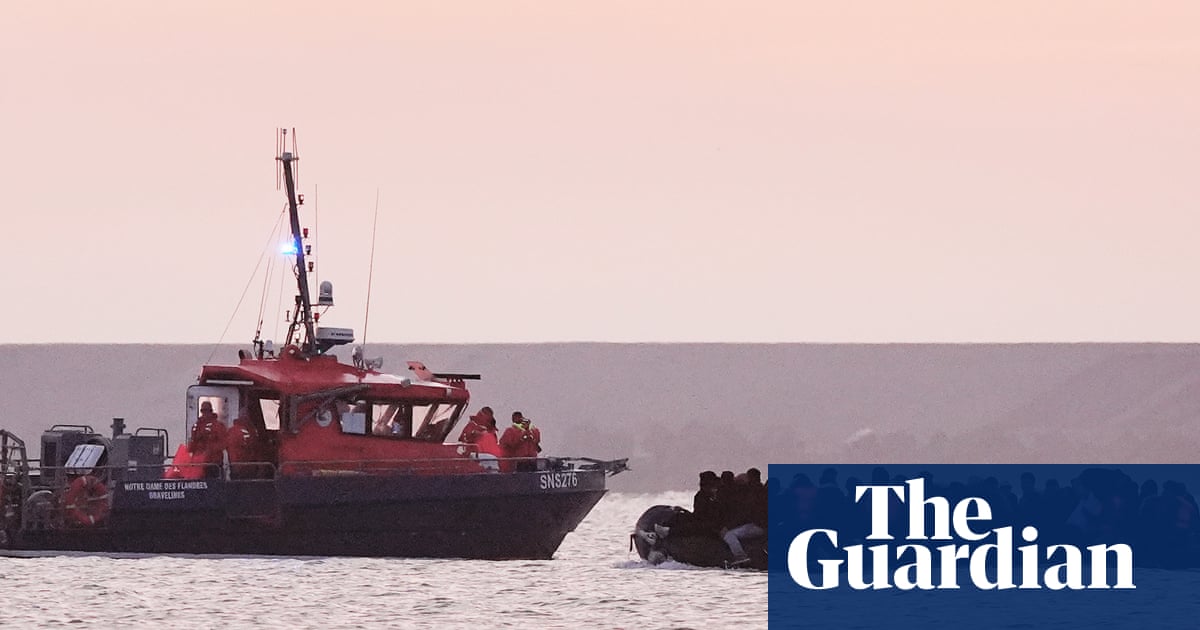The French government plans to begin intercepting small boats carrying asylum seekers even if they are already at sea, aHome Officesource has said.
In a move that NGOs claim will endanger lives, it was claimed that French officials agreed this week to draw up plans to begin intervening in waters close to beaches and inland canals.
A Home Office source said the plan was intended to clamp down on boats that “taxi” up to French beaches from nearby waterways. “The French have said this week they will intervene to tackle the taxi boats which are operating inland and near to French beaches to help prevent these dangerous crossings,” the source said.
Keir Starmer is attempting to fight off a growing challenge from Nigel Farage’s Reform UK, andLabourparty officials are convinced that rising irregular immigration numbers will be a key issue in future elections.
Yvette Cooper, the home secretary, expressed her concern on Monday that French officials were not intercepting boats at sea “as swiftly as possible” after a record 1,195 people reached the UK in 19 small boats on Saturday. It took the total number of such arrivals so far this year to 14,812, the highest on record.
It was reported that French officials stopped fewer than 200 people from making the journey, but Home Office sources said French authorities had intervened to stop nearly 500 people trying to get into small boats on that day. There was footage of a gendarmes looking on from the beach as people attempting to reach the UK ran into the water and climbed onboard small boats.
Current guidelines prevent French police from intervening offshore unless it is to rescue passengers in distress. In practice, the policy means officers can stop boats leaving the beach by puncturing them, but are restricted once they are in the water.
In February, Bruno Retailleau, the French interior minister, said he wanted a change to the rules to enable officers to intervene in the water up to 300 metres from the coast. “We have to review our organisation so that we can board these boats … arriving to pick up migrants,” he said.
Le Figaro newspaper reported earlier this year that ministry officials were still working on what were being termed the “feet in the water” guidelines to implement the policy. However, the French maritime daily newspaper Le Marin said the proposed change of rules had been opposed by local police officers.
Cooper has said she wants French border police to intercept the taxi boats not only in the shallow waters as they leave the beaches but also when they make their way from rivers and inland waterways to pick up people on the beach. With heatwaves forecast this summer, there are concerns still larger numbers of people will attempt the perilous crossing.
Traffickers have circumvented rules by asking asylum seekers to wade waist-high into the Channel, where they are picked up by dinghies that were launched from inland canals.
French government sourcestold the Telegraphon Wednesday that ministers overseeing migration policy had given the green light to stopping boats in the water while respecting the law of the sea.
It is understood that the French authorities have said they will draw up plans to intercept boats in shallow waters within weeks.
Cooper is also planning a new law to fast-track the removal of asylum seekers who arrivefrom countries deemed to be safe.
Sign up toFirst Edition
Our morning email breaks down the key stories of the day, telling you what’s happening and why it matters
after newsletter promotion
A Home Office analysis released on Wednesday morning claimed that the record numbers of people arriving in the UK via small boats could be attributed to favourable weather and greater numbers being crammed into vessels. Figures show there were twice as many “red days” – when there are calmer conditions in the Channel, meaning crossings are more likely – in the first four months of this year as there were in the same period in 2024.
In the year to April, 47% of boats crossing the Channel had 60 or more people onboard, compared with 2% in the year to April 2022.
The Migration Observatory at Oxford University challenged the Home Office analysis, saying there was no evidence that weather was a major factor in long-term increases in arrivals.
Priti Patel, then Tory home secretary, attempted to draw up plans for UK and French officers to intervene at sea in 2021, but her French counterpart said thatFrancewould not accept any practices contrary to the law of the sea. The plans were eventually shelved.
Responding to the latest plans, Steve Smith, the chief executive of Care4Calais, said the plan would cost more lives at sea as gangs and asylum seekers took greater risks to reach the UK.
“Last year saw a record number of refugees lose their lives on our border, and still our political leaders risk more deaths rather than create safe routes to claim asylum,” he said.
“Interceptions in the sea, like the last Tory government’s failed attempt to implement pushbacks, have never been tried because they put lives at risk, and are most likely illegal. Like all the other so-called deterrents, and failed security initiatives, this is doomed to fail, but it will cost lives along the way.”
